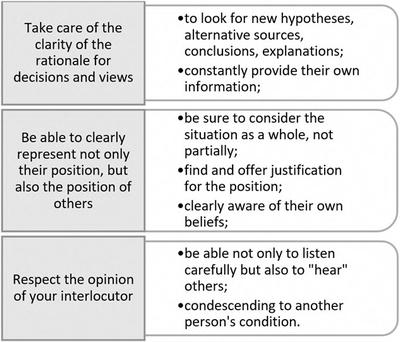ISSN 2708-4612 (online)
Vol. 3 (2020)

In this issue:
- Mapping lifelong learning quality: a bibliometric study
- Financial education of schoolchildren with the use of digital technologies: European experience
- European strategy for determining the level of competence in the field of digital technologies: a framework for digital competence for citizens
- Development of a computer-based learning environment in the conditions of multicultural education in the European Union
- Implementation of reflective model of educational practice in the modern Finnish school
- Historical reconstruction of education in author schools of Ukraine
- Marketing of educational services for continuous professional development of modern educator
- Comparative analysis of the structure and content of curricula for translators in higher education institutions of Ukraine and France
- Trends in the development of inclusive education in Ukraine
- Bilingual model of future specialists’ training by means of artistic design
- Axiological approach to the psychological and pedagogical training of future teachers of the new generation
- Diagnosis of the audio-verbal memory as a basic modality of mnemonic processes of elementary school children with Dyslexia
- Regulatory and legal basis of Ukraine’s investment policy in the field of higher education
- Using of Social Media in School Management: Experience of Ukraine and United States of America
- Types and functions of precedent fenomena of culture in the linguodidactic context
- The features of the learning of political linguistics at higher education institutions
- Interactive means of motivating students to learn English for specific purposes at agrarian and technical universities
- Experimental research on the formation of future ship engineers' communicative competence based on gamification approach
- Summer school: a non-formal way to tackle education challenges
- Information support for quality management of education in general educational institutions of Ukraine
- On arranging the procedure of public debate on the educational curriculum draft for Master students majoring in 014 Secondary Education (Mathematics), academic discipline 01 Education/Pedagogics
- Development of critical thinking as a means of forming STEM competencies
- Communicative approach with elements of bilingualism in teaching physics
- Didactic model of formation pedagogical universities students’ digital competence
- Developing of the electronic educational and methodological complex “Automotive design” for the professional training of future teachers of vocational training in the field of transport
- Аnalysis of the use of LCMS Moodle in the educational process of KSPU
Published:
10-12-2020
-
Mapping lifelong learning quality: a bibliometric study
- Abstract views 605
- PDF views 183
-
Historical reconstruction of education in author schools of Ukraine
- Abstract views 444
- PDF views 130
-
Marketing of educational services for continuous professional development of modern educator
- Abstract views 487
- PDF views 188
-
Trends in the development of inclusive education in Ukraine
- Abstract views 595
- PDF views 294
-
Bilingual model of future specialists’ training by means of artistic design
- Abstract views 417
- PDF views 102
-
Regulatory and legal basis of Ukraine’s investment policy in the field of higher education
- Abstract views 420
- PDF views 75
-
Using of Social Media in School Management: Experience of Ukraine and United States of America
- Abstract views 543
- PDF views 190
-
Types and functions of precedent fenomena of culture in the linguodidactic context
- Abstract views 622
- PDF (Ukrainian) views 140
-
The features of the learning of political linguistics at higher education institutions
- Abstract views 389
- PDF views 108
-
Summer school: a non-formal way to tackle education challenges
- Abstract views 632
- PDF views 261
-
Development of critical thinking as a means of forming STEM competencies
- Abstract views 897
- PDF views 236
-
Communicative approach with elements of bilingualism in teaching physics
- Abstract views 350
- PDF views 114
-
Didactic model of formation pedagogical universities students’ digital competence
- Abstract views 399
- PDF (Ukrainian) views 70
-
Analysis of the use of LCMS Moodle in the educational process of KSPU
- Abstract views 470
- PDF (Ukrainian) views 81






























